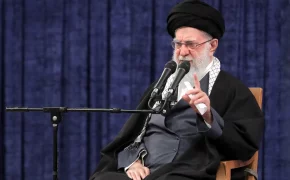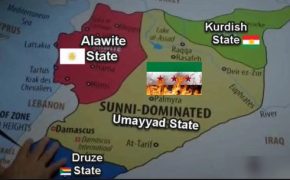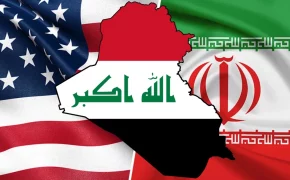Consequences of US withdrawal from Afghanistan


Examining the current relations and scenarios facing the Central Asian region after the US withdrawal from Afghanistan indicates the tumult period causing significant regional changes.
As we know, the United States has signed a unilateral agreement with the Taliban to find a dignified way out of the 19-year war in Afghanistan, which, if fully implemented, will still have different dimensions for the country’s future. From this perspective, we examine the issues facing Afghanistan:
1- The current situation of the government and army of Afghanistan and its future:
Having a strong military force is one of the essential components of achieving stability, peace, and ultimately establishing a capable government. Consequently, a capable and effective government and meeting the requirements and solving political and social problems can prevent the emergence of terrorist groups.
Unfortunately, Afghanistan’s current government and army have a high financial and political dependence on foreign countries (US and NATO). Without their help, they will not be able to deal with the Taliban and ISIS groups.
In the US peace agreement with the Taliban, the future of this government and military forces remains unclear, and only a political agreement is mentioned, and this is enough to worry other Afghan factions about the future of Afghanistan; Because Afghans have experienced such a vacuum in the years since the presidency of Mohammad Najibullah. At that time, the army collapsed due to chronic ethnic and factional differences, lack of strong leadership, reduced financial support, etc.
The Taliban have not taken a formal and transparent position on the government so far and the military, referring only to their conversion to Islam by using a vague term.
2- The position of the West Asian region countries and Iran about the consequences of the withdrawal of the United States from Afghanistan:
Among the countries and powers in West Asian, Iran, Russia, India, China, Turkey and even Pakistan have the desire and the opportunity to partner with the Afghan army to avoid a power vacuum after the United States’ withdrawal.
In the meantime, Iran has more suitable conditions to help Afghanistan’s stability for several reasons, including common culture and race, balanced relations with all Afghanistan groups, the Liwa Fatemiyoun army’s existence, etc.
Iranian officials have also recently taken a positive view of further assistance in resolving the Afghan crisis, calling the Liwa Fatemiyoun an efficient force for Afghanistan’s stability.
3- Intra-Afghan talks:
In the first round of talks, the parties have agreed on the agenda and framework of their talks, and in the second round, which will be held in the coming days, they intend to discuss the issue of the “Islamic Transitional State”. The Taliban are also said to have demanded a 60 per cent share in the transitional government and a 40 per cent share of the opposition delegation and tried to legalize the Hanafi religion in the negotiations.
There is no single voice on the Taliban front. On the one hand, Ashraf Ghani’s government emphasizes the establishment of a comprehensive ceasefire. It rejects regime change, and on the other hand, the factions present in the negotiating team are pursuing other positions.
On the other hand, the clashes between the Taliban and the army continue, and the central government is facing the death of more than 10,000 people in these clashes. Furthermore, controlling some cities and regions such as Atghar city in Zabul province, the Helmand province’s western and southern regions have fallen into the Taliban’s hands. Despite such circumstances, it can be said that the Afghan peace talks are moving in an uncertain and unreliable direction.
4- Change of government in the United States and the promise to leave Afghanistan:
State of America of Obama, Trump and Biden on their election campaign promises so much about ending the war in Afghanistan and Iraq have provided. For a dignified exit, they have always sought to maintain the country as one of their bases by establishing a democratic government in Afghanistan, withdrawing their forces from Afghanistan, and ending their billion-dollar spending on security in the country. However, this goal has not been realized in the latest government effort to a deal with the Taliban Trump was unstable.
US macro-policies in essential regions of the world, such as West Asia and Central Asia, are not something that can be changed by changing governments and political figures. With a proper railroad, the Americans will determine their government’s framework in each region and each issue. The peace agreement with the Taliban, the inter-Afghan talks, and any other program will be based explicitly on US pre-determined policy. Of course, this does not mean that Joseph Biden’s government is committed to a peace agreement with the Taliban and that any of them may call the Biden a violator of the agreement and leave it.
In general, US goals in Afghanistan are:
1- Overcoming the Taliban
2- Establishing an effective Afghan government
3- Maintaining military and security influence in Afghanistan
These goals have been abandoned by a hasty and unilateral agreement with the Taliban and the handover of the government’s formation to the inter-Afghan talks. More importantly, the United States’ goals are in complete contradiction with the Taliban’s goals. In other words, the Taliban is 100% opposed to the US presence in Afghanistan, and it remains to be seen what decision Joseph Biden will take to confront the Taliban after taking over the US presidency.




Comment